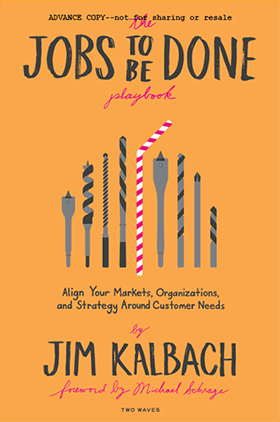Strategy: Product Strategy
UXmatters has published 11 articles on the topic Product Strategy.
Top 3 Trending Articles on Product Strategy
-
Envisioning Experience Outcomes
April 20, 20152 CommentsWhen your organization’s goal is to differentiate on the experience, you must start every product-development project by defining the experience that you want people to have with your product or service. Companies that differentiate on the experience do not begin by defining feature sets. They first define a vision for the experience outcome that they intend to deliver to their users and customers. Only once your team fully understands the experience outcomes that you want users to have can you make good decisions about what features and technologies would optimally support that vision.
This is the fourth column in our series about what companies must do if they want to stop producing average user experiences and instead design great experiences. As we have already stated in our previous columns, great UX teams focus on differentiating their companies through design. If that’s your goal, you need to work for a company that shares your aspirations. Read More
-
Book Review: The Jobs To Be Done Playbook
July 20, 2020 In this edition of Discovery, I’ll review Jim Kalbach’s recently published book, The Jobs To Be Done Playbook: Align Your Markets, Organizations, and Strategy Around Customer Needs. If you know nothing or everything about jobs-to-be-done, I’ll provide enough information in this review for you to decide whether this book is right for you.
In this edition of Discovery, I’ll review Jim Kalbach’s recently published book, The Jobs To Be Done Playbook: Align Your Markets, Organizations, and Strategy Around Customer Needs. If you know nothing or everything about jobs-to-be-done, I’ll provide enough information in this review for you to decide whether this book is right for you.In addition to authoring two other UX books—Designing Web Navigation and Mapping Experiences—Jim Kalbach is a well-known speaker at UX conferences and workshop moderator. He is also Head of Customer Experience at Mural, a software company that develops digital collaboration tools for organizations. Read More
-
Using Objectives and Key Results to Inform UX Design
August 23, 2021This month in Ask UXmatters, our expert panel discusses how objectives and key results (OKRs) can inform UX design. The panel explores how the use of OKRs differs from traditional requirements gathering. Our panelists then discuss the relationship between OKRs and product strategy and common pitfalls of using OKRs.
We also recommend a couple of books that could help you apply OKRs in your work. Finally, I discuss the importance of keeping business needs in mind. Read More
All Articles on Product Strategy
- 5 Product Analyses That Put Customers at the Center of Your PLG Strategy
- Using Objectives and Key Results to Inform UX Design
- Differentiating UX Strategy from Tactics
- Book Review: The Jobs To Be Done Playbook
- Book Review: UX Strategy
- Integrating User-Research Findings into Strategy
- Differentiating Product Strategy Through User Experience
- Are You Giving Users What They Ask For?
- Making the World a Better Place Through User Experience
- Envisioning Experience Outcomes
- Making User Experience Part of Business Strategy | Understanding a Product’s Target Culture